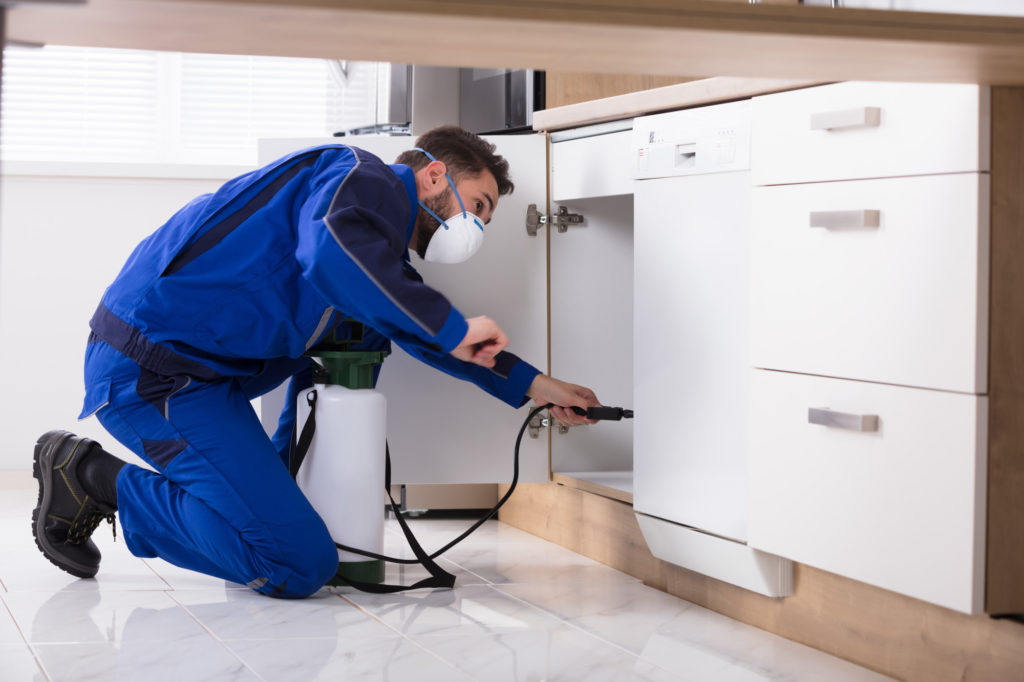
The Importance of Proper Home Insulation
A comfortable, energy-efficient home is something every homeowner aspires to have. While we often focus on aesthetics or appliances, there’s one hidden hero that plays a pivotal role in achieving this goal—insulation. Proper home insulation does more than just keep your home warm in the winter and cool in the summer. It’s a shield, both against skyrocketing energy bills and unwanted critters seeking refuge in your abode. Let’s delve into the multiple benefits of proper insulation and why it’s so crucial for your home.
What Exactly is Proper Insulation?
Insulation, in the context of homes, refers to materials used to reduce the transfer of heat. But while we often simply hear the term ‘insulation’ and think of pink fiberglass rolls, there’s more to it. Proper insulation isn’t just about having insulation materials in place; it’s about having the right kind, in the right places, and installed correctly. Let’s demystify the concept.
Types of Insulation
Insulation materials come in various forms, and each has its unique benefits:
- Batt and Roll Insulation: This is perhaps the most commonly recognized form of insulation, made from fiberglass, mineral wool, or cotton. It comes in large rolls or pre-cut panels and is often used in walls, floors, and ceilings.
- Spray Foam Insulation: A liquid that expands into a foam, it fills gaps and can be used in hard-to-reach places. Its ability to expand allows for a tight seal, making it especially effective against air leaks.
- Blown-In Insulation: Made of tiny particles of foam or fiber, this insulation is blown into spaces using special equipment. It’s ideal for attics and between wall cavities.
- Rigid Foam Board Insulation: These are firm panels of insulation, often used for reproofing and exterior insulation, as well as in basements and crawl spaces.
R-Value: The Measure of Insulation
The effectiveness of insulation is gauged by its R-value, which measures resistance to heat flow. A higher R-value signifies more effective insulation. It’s crucial to choose insulation with the right R-value for your home’s specific needs, factoring in the local climate and the area of the house being insulated.

Comprehensive Coverage
Proper insulation means ensuring that every part of your home that interfaces with the outside is insulated. This includes:
- Walls: Both external and some internal walls should be insulated to prevent heat transfer.
- Roof and Attic: Heat rises, so ensuring that your roof and attic are well-insulated is crucial to keep warmth in during colder months.
- Floors: Insulating floors, especially those above unheated spaces like garages, can contribute significantly to a home’s thermal comfort.
- Basements and Crawl Spaces: These areas can be significant sources of heat loss if not properly insulated.
- Windows and Doors: While not insulated in the same way, using weather stripping and ensuring proper seals is a complementary measure to insulation in these areas.
Proper Installation
Even the best insulation materials can underperform if they’re not installed correctly. Compressed batts, gaps in foam insulation, or insufficient blown-in insulation can all reduce the effectiveness of your efforts. Thus, working with a professional or thoroughly educating oneself on proper installation techniques is paramount.
Proper insulation is a harmonious blend of the right materials, comprehensive coverage, and expert installation. It acts as a thermal barrier, ensuring that the desired temperatures inside your home are maintained regardless of the external weather conditions. Investing time and resources into understanding and ensuring proper insulation can lead to years of comfort, cost savings, and a reduced environmental footprint. When considering insulation options, always factor in the specific needs of your home and seek expert advice if unsure. The comfort of your living space hinges significantly on the unseen barriers within your walls, floors, and ceilings.

Energy Efficiency: More Than Just Comfort
A well-insulated home is synonymous with energy efficiency. But why is that so important? For starters, insulation acts as a barrier, slowing down the transfer of heat. This means during colder months, the warmth produced by your heating system stays inside, and during hotter months, the heat from outside doesn’t penetrate your home as easily.
The immediate benefit is comfort. Rooms are less drafty, and temperatures are more consistent throughout the home. But there’s also a significant financial advantage. When your heating and cooling system doesn’t have to work overtime to compensate for heat loss or gain, you’ll notice a substantial reduction in your energy bills. Over time, the savings can be substantial, making proper insulation an investment that pays for itself.
Boosting Energy Efficiency with Proper Insulation
Insulation is like a protective blanket around your home. When effectively done, it can dramatically reduce the amount of energy consumed in maintaining the desired indoor temperatures. This isn’t just a statement to make your house feel pampered—it translates into tangible benefits for homeowners.
The Link Between Insulation and Energy Efficiency
Heat naturally flows from warmer to cooler spaces. In the winter, heated indoor air will flow out of the house to the cooler exterior environment, and vice versa in the summer. Insulation acts as a barrier, resisting this natural flow of heat and, in turn, reducing the burden on your heating and cooling systems.
- Reduced Utility Bills: By minimizing the demand on your HVAC system, insulation ensures that less energy is required to maintain comfortable temperatures. This can result in significant savings on energy bills over time.
- Longer HVAC System Lifespan: A well-insulated home requires less frequent heating and cooling. This means your HVAC system works less strenuously and is less prone to wear and tear, prolonging its lifespan.
- Consistent Temperatures: Proper insulation results in fewer drafts and cold spots. It maintains a more consistent temperature across different rooms, enhancing overall comfort.
- Environmental Impact: By consuming less energy, you’re not only cutting down costs but also reducing your carbon footprint. It’s a step towards a more sustainable living, aligning with global efforts to combat climate change.
Signs Your Insulation Isn’t Cutting It Anymore
It’s crucial to note that insulation can deteriorate over time. Here are some signs that might indicate your insulation isn’t as efficient as it once was:
- Fluctuating Indoor Temperatures: If you find certain rooms in your house getting too cold in the winter or too hot in the summer, it could be due to insulation issues.
- Skyrocketing Energy Bills: A sudden spike in your heating or cooling bills, without any significant change in external temperatures, might be a sign that your insulation needs a review.
- Drafts: Feeling cold air seeping in, especially around windows and doors, is often an indicator of insulation problems.
- Ice Dams on Roof: In winter, if you notice large icicles forming at the edge of your roof or inside your home, it could be due to heat escaping through the attic, melting the snow on your roof.
- Wall, Ceiling, and Floor Temperature: If these surfaces feel unusually cold or damp during winter, or hot during summer, it’s a sign of inadequate insulation.
- Aged Insulation: If your insulation hasn’t been replaced or upgraded in decades, it’s likely not as efficient anymore.
Remember, insulation doesn’t last forever. With advancements in insulation technology and materials, it may also be worth considering an upgrade purely for the benefits of newer, more efficient options.

Proper insulation is a homeowner’s silent partner in creating a comfortable, cost-effective, and energy-efficient living environment. Periodically checking on your insulation and being vigilant for signs of inefficiency can ensure your home remains an oasis of comfort, irrespective of the changing seasons outside. And if you’re unsure about the state of your insulation, consulting a professional can provide clarity and guidance on the best steps forward.
A Shield Against Unwanted Guests
While most homeowners insulate their homes for comfort and cost savings, there’s another compelling reason to ensure your home is well-insulated: pest control. Many critters view homes as sanctuaries from external elements. Whether it’s the warmth during winter or the coolness in the summer, our homes offer conditions that are often perfect for pests.
Proper insulation, especially when done with materials that are pest-resistant, acts as a deterrent for many critters. For instance, fiberglass insulation is less appealing to rodents than other materials, as it doesn’t make for a comfortable nesting ground. Additionally, well-sealed homes can prevent insects, spiders, and other pests from finding entry points.
Furthermore, the moisture barrier properties of good insulation can deter pests that thrive in damp environments. By reducing the moisture and condensation in walls and attics, insulation can make these spaces less attractive to pests like termites, silverfish, and certain types of ants.
Preserving the Integrity of Your Home
Beyond energy savings and pest control, insulation contributes to the overall structural integrity of your home. When the elements can’t easily penetrate a home, there’s less wear and tear on materials. Reduced moisture means a decreased risk of mold, mildew, and rot, all of which can compromise the strength and safety of your home’s foundation and walls.
A Strong Foundation
The foundation of a home doesn’t just refer to the concrete base, but to the entire structural integrity of the dwelling. Proper insulation is an often-underestimated element that helps in maintaining and even fortifying this foundation. Let’s delve into how insulation plays a pivotal role in preserving your home’s integrity.
Protecting Against Moisture
Insulation doesn’t just retain heat; it can also act as a moisture barrier. The right kind of insulation, especially in areas prone to dampness such as basements and attics, can prevent the build-up of moisture. Excessive moisture can lead to mold growth, rotting wood, and compromised structural integrity over time. By ensuring these areas are well-insulated, homeowners can proactively guard against these potential damages.
Reducing Wear and Tear
Temperature fluctuations aren’t just uncomfortable for residents; they can also be detrimental to your home’s materials. Wood, for instance, can expand and contract with temperature changes, which over time can lead to warping, cracking, or other forms of damage. Proper insulation minimizes these drastic temperature shifts, thereby reducing the associated wear and tear on your home’s construction materials.
Preserving Air Quality
While it might not seem immediately obvious, insulation can play a role in maintaining the air quality inside your home. By acting as a barrier against pollutants and allergens, effective insulation ensures that the air you breathe indoors is cleaner and healthier. This is especially important in regions where external air quality may be compromised due to factors like pollution or pollen.

Enhancing Home Longevity with Thermal Bridging Reduction
Thermal bridging occurs when there’s a direct connection between the inside and outside of a home through materials that are poor insulators. This can lead to cold spots in a house and increased energy costs. By ensuring proper insulation, homeowners can reduce or eliminate these thermal bridges, ensuring a uniform temperature distribution and enhancing the longevity of the home’s structure.
Financial Implications
Beyond the physical structure, the financial integrity of your investment in your home is also protected by proper insulation. Homes that are well-insulated tend to fetch better market prices due to the reduced future costs associated with energy and potential structural repairs. So, in essence, you’re not only preserving the physical state of your home but also its financial worth.
Insulation is much more than just a barrier to the cold or heat; it’s a guardian of your home’s integrity. From protecting against the tangible threats of moisture and wear and tear to ensuring you breathe cleaner air and even safeguarding your investment’s value, proper insulation is a silent but significant hero. By ensuring that your home is well-insulated, you’re not only guaranteeing comfort but also ensuring that the haven you call home stands robust and proud for years to come.
Acoustic Benefits of Proper Insulation
Beyond thermal advantages, proper insulation offers acoustic benefits. A well-insulated home can significantly dampen external noises, ensuring a quieter, more peaceful living environment. Whether it’s the sound of traffic, loud neighbors, or even nature’s elements like strong winds or heavy rain, insulation can act as a barrier to these disturbances.
Fire Safety with Insulation
Certain insulation materials, such as fiberglass and mineral wool, are naturally non-combustible and can help slow down the spread of a fire. While insulation isn’t a replacement for fire safety measures, it can be an additional layer of protection. For homeowners, this added safety layer can provide peace of mind, knowing their homes have a reduced risk of rapid fire spread.
Environmental Considerations
With the growing emphasis on sustainable living and reducing carbon footprints, proper insulation can be a homeowner’s ally. Efficiently insulated homes require less energy for heating and cooling, leading to reduced greenhouse gas emissions. Consequently, by insulating your home adequately, you’re not only saving on energy bills but also contributing to a healthier planet.

Choosing the Right Insulation
Just as every home is unique, the insulation needs can vary based on a multitude of factors: location, age of the house, construction type, and more. It’s essential for homeowners to be aware of the various insulation types, like spray foam, batts, rolls, or loose-fill, and to consult with professionals to determine which is best suited for their specific needs.
Aesthetic Value and Insulation
While insulation predominantly remains hidden behind walls or above ceilings, its benefits can indirectly enhance a home’s aesthetics. For instance, homes that are adequately insulated can maintain consistent temperatures, preventing issues like wall paint peeling off due to moisture or dampness. Moreover, the increased comfort and ambiance of a well-insulated home can elevate the overall living experience, making the home feel more welcoming.
The significance of proper insulation extends far beyond just comfort. It touches upon aspects of safety, financial savings, environmental responsibility, and even the sheer joy of living in a space that feels ‘just right’. For homeowners, understanding the multifaceted benefits of insulation can guide more informed decisions, ensuring their homes remain cozy, safe, and efficient for the long haul. And while insulation might not always be visible, its positive impacts are undeniably felt in every corner of a well-insulated home.
When considering home improvements, insulation might not be the flashiest project, but its benefits are vast and long-lasting. From substantial energy savings to enhanced comfort and protection against pests, proper home insulation is a cornerstone of a safe, efficient, and comfortable living environment. If you ever suspect that your home’s insulation might be lacking or compromised, addressing it can lead to a cascade of positive effects for both your living space and your wallet. And remember, while insulation can help deter pests, if you suspect an infestation, it’s always best to consult with professionals to ensure your home remains your sanctuary. If you do find yourself with a pest problem, Kwote Advisor is here to help with reliable pest control quotes from companies near you.


